
 Greetings from Rwanda
Greetings from Rwanda
My name is Dennis and I’ll be updating you on the Building Learning Foundations (BLF) programme in Rwanda, where I’m currently volunteering as a District Teaching Advisor (DTA). I’m happy to get in touch and let you know that I’ll be writing to you to tell you all about how the programme is progressing and show how your generosity is positively changing the education system for children in Rwanda.
September's featured volunteer

I’m overjoyed to be a part of VSO! Before joining, I never had any experience in volunteering. I miss home in Uganda but it’s one of the best decisions I’ve made and I’ve never looked back.
I’d like to think of myself as a passionate, creative, and resilient person and a bit of a problem solver. I chose to work on the BLF programme because I liked the idea of being a part of the fundamental movement that’s happening in education in Rwanda.
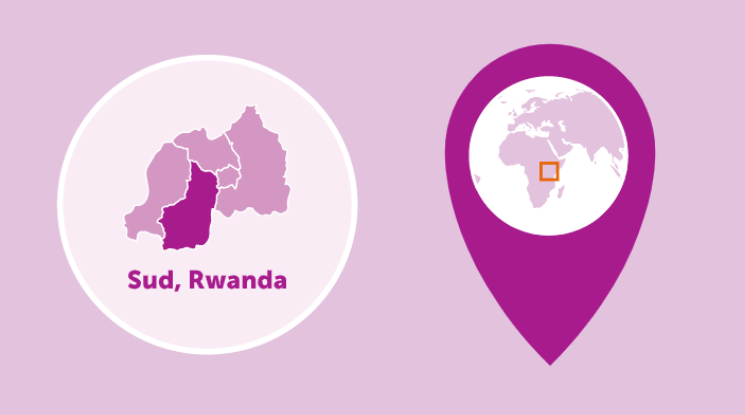
I work on the Building Learning Foundations project in Rwanda. With over 10 years of teaching learners and training teachers, I am able to support the stakeholders effectively and efficiently. I build their confidence and help them create a culture or habit that will make them attain their goals and targets through proper planning, making a follow up, reflecting on their work and build resilience in them.
September '22 volunteer update
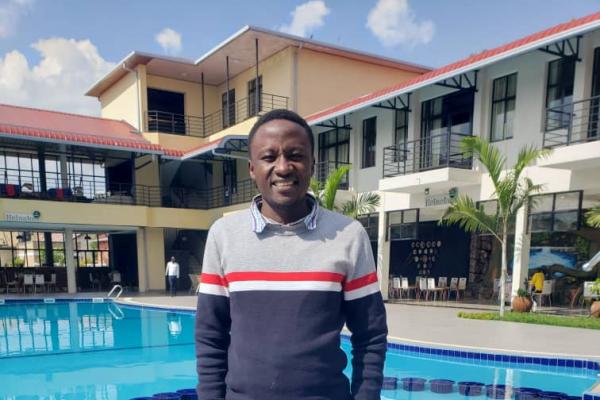
Before my time here, I was a high school teacher of English language and literature. I have also worked with an institution that supports and builds the capacity and development of teachers. I feel very fortunate to be able to share my experiences to help find solutions to potential challenges.
I’m also lucky to have the opportunity to work with a wide range of stakeholders who are responsible for the positive change in education – from teachers, headteachers, director of studies and more.
It’s been special to witness how they are becoming more confident and unlocking the power they have to bring about that change.
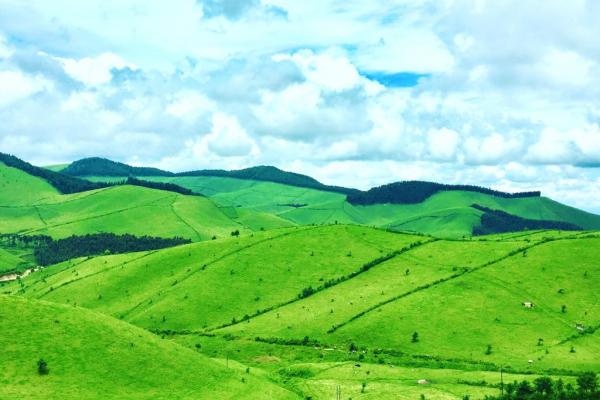
The shift in education and my role in BLF
I’m currently stationed in the Western province of Rwanda in the Rutsiro District – it’s one of 30 districts in Rwanda. It’s a hilly area and is boarded by Lake Kivu.
BLF is supporting the shift in the Rwandan education system – the Rwandan Government changed the teaching language to English from French and Kinyarwanda (the official language of Rwanda) since 2008. I’ve found that it has not been easy for teachers to adapt and adopt the new system.
My mentality is that change is a part of life – we have to accept and move on. But change does not come overnight. Through consistent support, mentoring and coaching, teachers have started to gain confidence and appreciate the support that is being provided through BLF.
BLF consists of three core foundations which all combine to bring about learning outcomes in Rwandan schools. Foundation 1 works with teacher development, Foundation 2 is for leadership for learning, and Foundation 3 deals with system strengthening at national level.
My core responsibilities are rooted in Foundation 1. I provide technical support to the Education Unit. The Education Unit comprises of a group of stakeholders such as the Director of Education and District Education Officers who oversee primary and secondary level. When I’m not at the district offices engaging the Education Unit, you can find me on a VSO motorbike with an experienced rider, heading to schools located in remote areas.
I visit schools to conduct classroom observations and then meet with teachers both to give them feedback and discuss any challenges. I also work closely with my team of seven Sector Learning Facilitators (SLF), who are assigned to particular sectors within the district and support with school visits, and one Special Needs Coordinator (SNECO).
My work involves developing SLFs through high quality training sessions so that they’re able to support, mentor and coach the teachers. But before doing this, the teachers and headteachers receive training on how to use the toolkits and guides so that they have a rough idea of their journey.
The aim of these sessions is to improve on their teaching approaches, methodologies, and techniques. It also helps to support those who are teaching mathematics and to improve the teachers’ English proficiency. The SLFs then provide high quality training for the teachers which I supervise to ensure efficiency and effectiveness is always met.
Another very important part of my role is to make sure that inclusive education is applied in all areas – to ensure that no child is left behind. For example, teachers practise classroom management, as classrooms can be large, seating arrangements are modified to suit learners’ needs.
Positive discipline is also promoted by teachers – the method focuses on positive behaviour which teaches learners that the classroom is a safe place which in turns fosters effective and efficient learning. For instance, if two pupils are caught in a disagreement, the teacher will take time to understand the problem by questioning both children separately and explain the negative effects of fighting in school.
The main aim of positive discipline is to create a relationship with the children – connection must come before correction for discipline to effectively work long term.
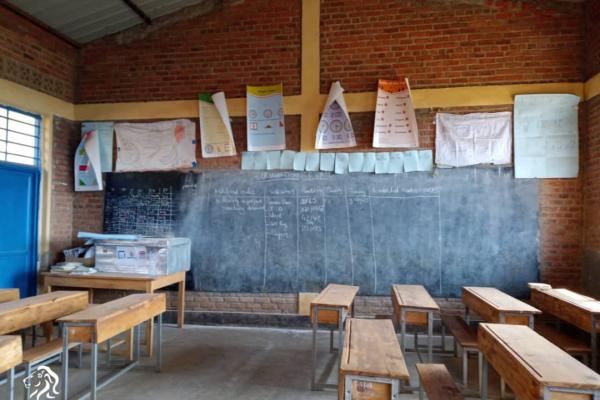
Currently, the programme is focussed on ensuring sustainability. If teachers are well equipped with the right tools such as teaching methodologies, learning aids, and a positive mindset, then long term learning outcomes are more likely to be obtained for the future. My team and I also provide support to new teachers who join the system, to ensure that they’re confident enough to teach effectively.
There’s still a lot that we’re working on, but I believe that learning outcomes will be achieved in the long run in Rwandan schools. I’m so glad to be a part of that change.
A challenge and successes
Of course, like anything in life, the project does come with its obstacles. I’ve found sometimes when you meet with a stakeholder and have a long discussion about teaching or leadership and you come up with actions together, they end up not following through.
In such situations, I get in touch with the individual via text or a phone call to give them a gentle reminder. I’ve found that this’ll usually keep them up to date and on track.
But I’ve also seen many positives where BLF has benefitted stakeholders. After attending BLF orientations and receiving technical support, the headteacher of a school in the Ruhango Sector learned a lot in terms of experiences and skills.
Equipped with this, he was able to apply it in his school and he later shared his learnings with other headteachers among the sector. The headteacher is also a National Leader of Learning and coordinates all the Professional Learning Communities (PLC) where headteachers from the BLF schools meet each month to discuss matters in hand. No one reminds them to arrange the meetings, but they take initiative which is a big step in the right direction.
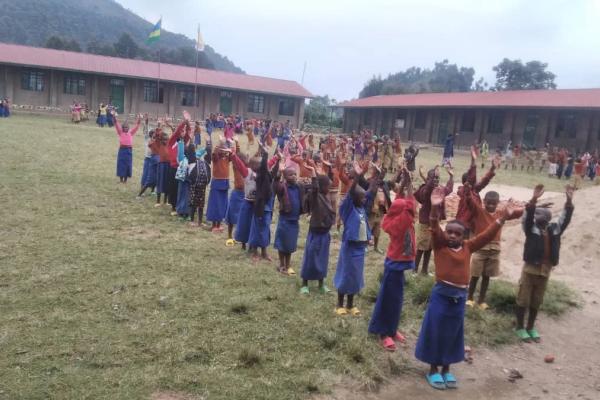
Implementing inclusive education
Having a SNECO in my team has helped to identify children with learning difficulties. Learners with extreme difficulties are first assessed by the SNECO, a teacher and a medical specialist. They are then referred to a school that’s able to provide ample support in their learning.
There are also focal teachers, selected leads of Special Education Needs in each school, who are there to support and ensure the teachers are using an appropriate method of teaching that is inclusive.
An example of inclusive learning is ensuring that classroom materials are modified to pupils’ needs. One way is by using locally sourced materials that the learners are familiar with such as bottle tops, milk cans, or small sticks. These concrete materials can be used in various ways like counting numbers in Maths. SNECOs also teach focal teachers the basics of sign language to be able to communicate with deaf learners.
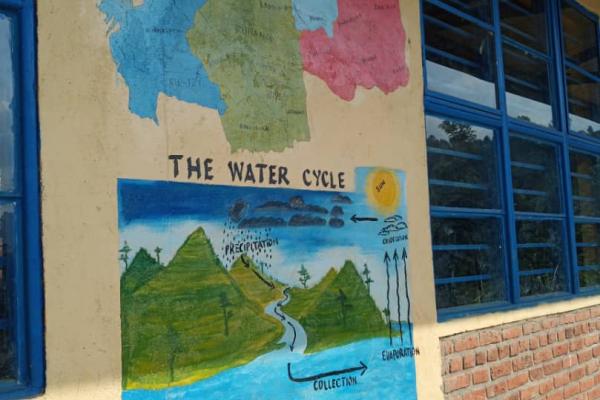
There was an instance where we had a child who had difficulties in writing and hearing. She had low grades from the beginning of the first year in school. Unfortunately, no great attention was given to her since the teacher had no remedy. A medical specialist helped to identify the learning difficulty which meant we were able to develop an Individual Education Plan. The plan helped the teacher to track the progress for the child’s needs. The teacher supported the child for a long period of time and assessed her regularly. In a space of two terms, due to the teacher’s persistence and consistency, the child had shown improvement in her work.
My time on BLF so far
One fundamental aspect that I’ve learnt from working on BLF so far is that change is possible if you are consistent. Over the years, stakeholders such as teachers and headteachers, have experienced a lot of changes and I’ve found that through BLF’s support, it’s been a dream come true for some that believed change was not possible.
I feel extremely satisfied that I’ve been a part of giving support and hope to provide a long-term impact.
I’m looking forward to continuing to update you on how BLF is getting on and I’ll speak to you again in November. But before I go, I’d like to say a big, heartfelt THANK YOU again for all that you do in supporting VSO. Without your generous gifts, your support, but more importantly, YOU – none of this could be achieved.
Take care and best wishes for now,
Dennis Bwire
VSO District Teaching Advisor
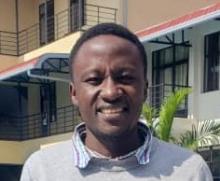
Want to ask a question?
VSO’s Sponsor a Volunteer team will share your message with the VSO volunteer and get back to you with a response. Your email address will not be used, disclosed or transferred to any VSO personnel, it will be stored securely in accordance with VSOs privacy policy. A sample of messages including display names will be published to the Sponsor a Volunteer homepage each month.
Your latest questions answered

Thank you Diane for your encouraging messages, am really thrilled and glad that you are able to get back to me. I just want to say thank you for your time and financial support. Stay blessed.
Regards,
Dennis.

Yes Colin, this worked out because of your financial support. Thank you once again.
Regards,
Dennis.

Thank you Sheila I really appreciate.
Regards,
Dennis.
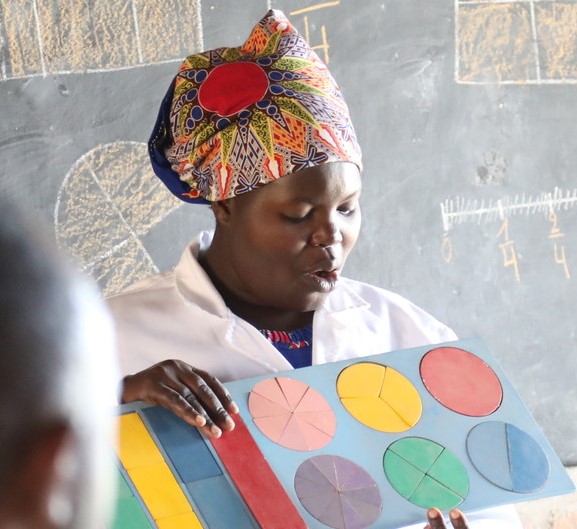
Did you know?
We bring about lasting change not by sending aid, but by working through volunteers to empower communities in some of the world’s poorest regions. You can read more about VSO’s areas of work and discover more about our projects here.

More news from VSO
The right climate to learn
Across the countries where VSO works, we see children and young people increasingly experience the effects of climate change. With climate change set to worsen, we know they are likely to experience more devastating consequences in their lifetimes.

